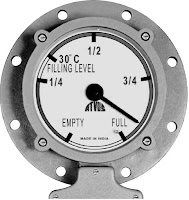Fuel cell -the Race for future Power Source Has Begun .
As the world continues to shift towards cleaner and more sustainable forms of energy, fuel cells have emerged as a promising technology in the race for future power. A fuel cell is an electrochemical device that converts the chemical energy of a fuel (usually hydrogen) and an oxidant (usually oxygen) into electrical energy, heat, and water.
- One of the major advantages of fuel cells is their high efficiency. Unlike traditional combustion engines, which convert only about 30% of the energy in fuel into usable power, fuel cells can convert up to 60% of the energy in fuel into electricity. This efficiency means that fuel cells have the potential to greatly reduce our dependence on fossil fuels and reduce greenhouse gas emissions.
- Fuel cells also offer other advantages, such as quiet operation, low maintenance requirements, and scalability. They can be used in a wide range of applications, from powering cars and trucks to providing backup power for buildings and homes.
- Despite the many advantages of fuel cells, there are still several challenges that need to be overcome before they can become a widespread and practical source of power. One of the biggest challenges is the cost of fuel cells, which is currently much higher than traditional power sources. However, as the technology improves and economies of scale are achieved, it is expected that the cost of fuel cells will decrease.
- Another challenge is the availability of hydrogen, which is the most commonly used fuel for fuel cells. While hydrogen is abundant in the universe, it is not found in its pure form on Earth and must be extracted from other sources such as natural gas or water. This extraction process can be expensive and energy-intensive, although new technologies are being developed to make it more efficient and sustainable.
- Despite these challenges, the race for future power is on, and fuel cells are a key technology in the quest for a more sustainable and cleaner energy future. With continued research, development, and investment, fuel cells have the potential to transform the way we power our world and help us move towards a more sustainable future.
"The race for renewable energy has passed a turning point. The world is now adding more capacity for renewable power each year than coal, natural gas, and oil combined. And there's no going back."
"Fuel cells offer the best chance to reduce our dependence on oil and create a new era of energy independence."
Few illustrations to demonstrate the race for future
power source has started:
- Increased investment in renewable energy: Governments, corporations, and individuals are investing more than ever in renewable energy sources such as solar, wind, hydropower, and geothermal. In 2021, global investment in renewable energy reached a record high of $303.5 billion, according to Bloomberg NEF.
- Electric vehicles (EVs): The adoption of EVs is rapidly increasing, with many countries setting ambitious targets to phase out fossil fuel-powered vehicles. For example, Norway aims to end the sale of new gas and diesel cars by 2025, and the UK plans to ban the sale of new petrol and diesel cars by 2030.
- Energy storage solutions: As more intermittent renewable energy sources are integrated into the grid, the need for energy storage solutions has become critical. Innovative technologies such as lithium-ion batteries, hydrogen storage, and flywheels are being developed to address this challenge.
- Hydrogen fuel cells: Hydrogen fuel cells are gaining traction as a clean energy source for transportation, power generation, and industrial processes. Several companies are developing fuel cell vehicles, and governments are investing in hydrogen infrastructure.
- Smart grids: The integration of renewable energy sources and energy storage requires a modernization of the power grid. Smart grids are being developed to enable more efficient, flexible, and reliable power distribution, with the help of advanced technologies such as artificial intelligence and block chain.







Comments
Post a Comment